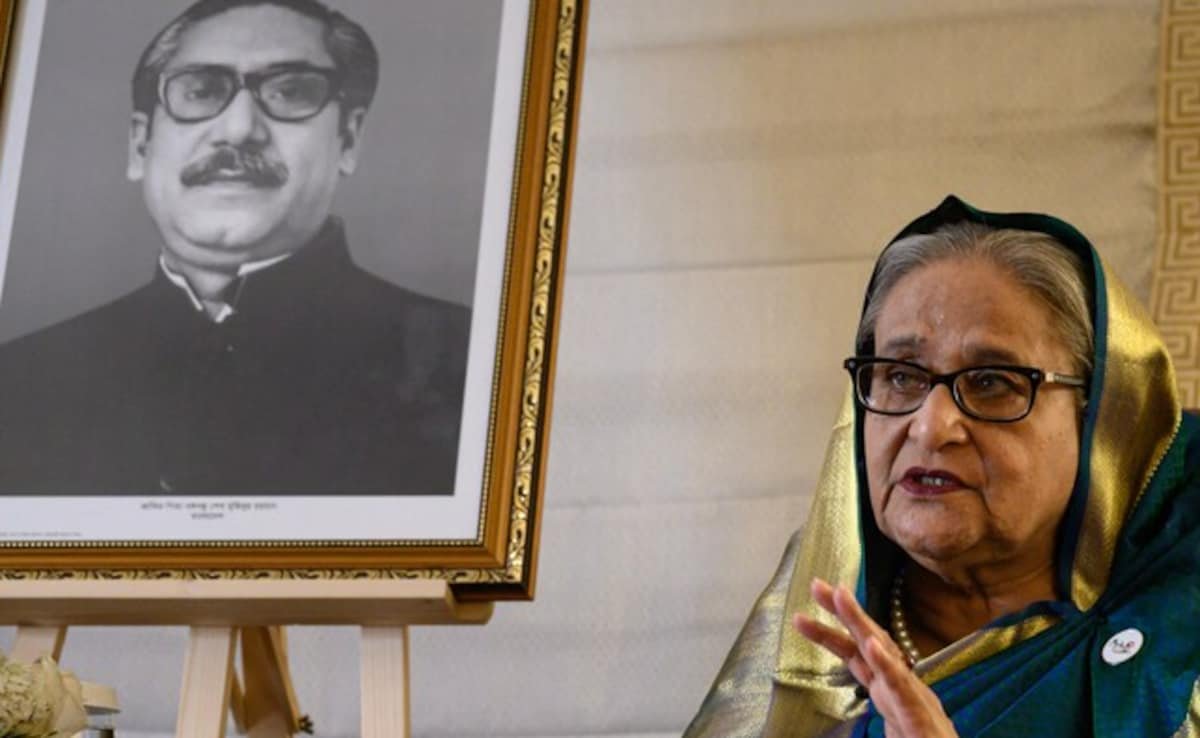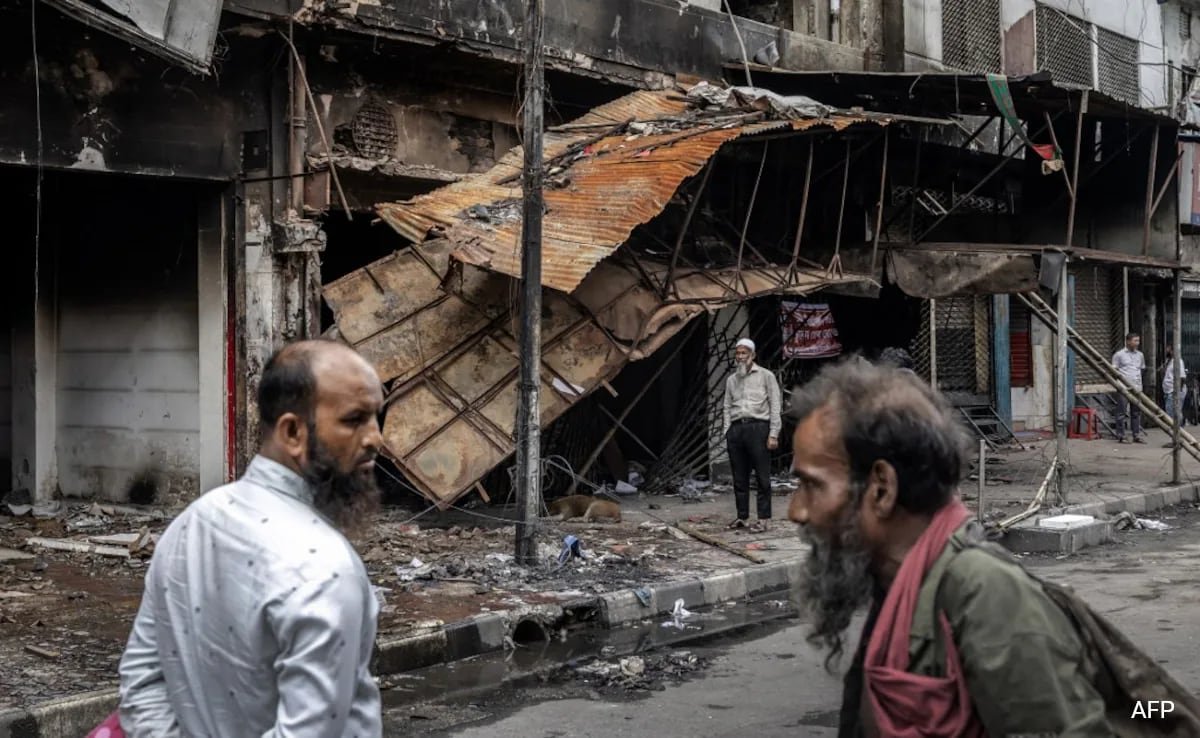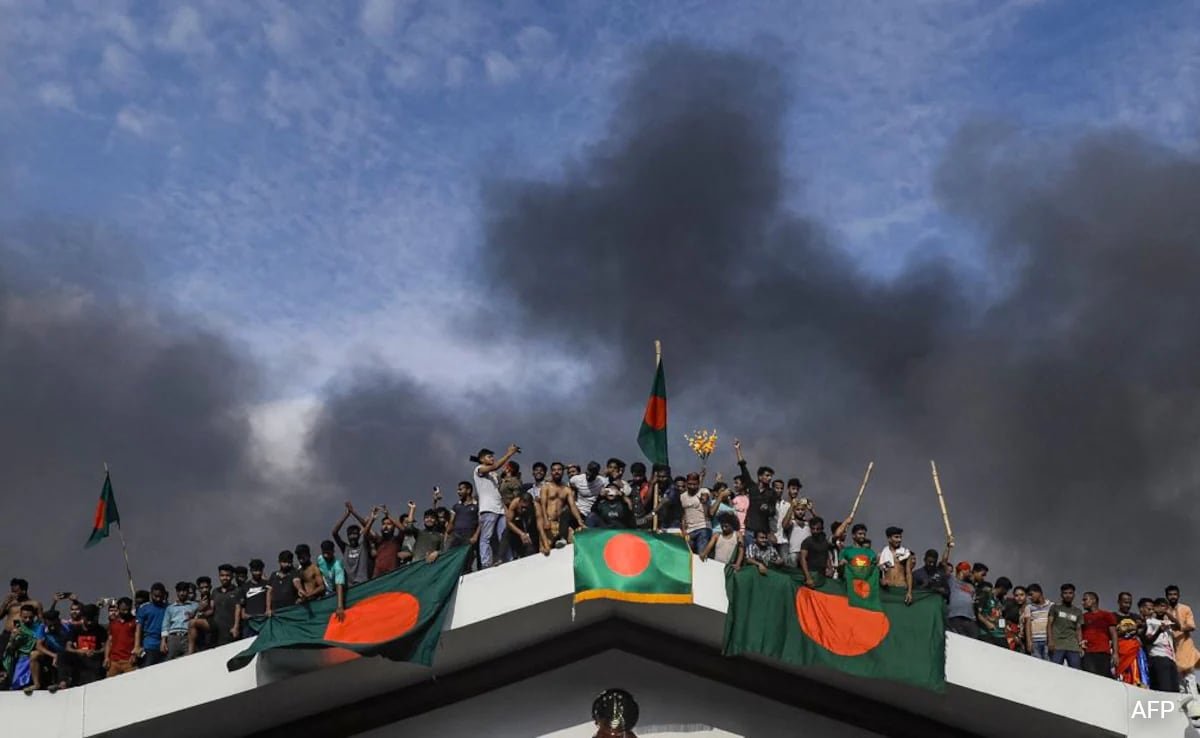Shashi Tharoor spoke to NDTV on implications of Bangladesh developments leading to Sheikh Hasina’s ouster
New Delhi:
Praising the Centre for giving refuge to Sheikh Hasina after she was forced to resign as Bangladesh Prime Minister amid violent protests, Congress leader and MP Shashi Tharoor told NDTV that the power shift in the neighbouring country is not a cause for worry for India.
Asked about his views on how the developments in Bangladesh would impact its ties with India, Mr Tharoor said, “Our fundamental interest lies in close and friendly relations with Bangladesh, our basic commitment is to the well-being of Bangladesh people, the State comes second and any individual leader comes third.”
“We are with the people of Bangladesh, we were with them in 1971, we have been with them through thick and thin, even when they had governments who were less than friendly to us, we have managed to keep our relationship on an even keel and certainly there should be no deterioration in that relationship in time to come,” he added.

On the interim government headed by Nobel peace prize winner and Grameen Bank founder Muhammad Yunus, he said it’s no cause for anxiety for New Delhi. “I know Muhammad Yunus personally, he is a highly respected figure. I suppose he is somewhat close to Washington rather than being seen as close to Jamaat e Islami or Pakistani ISI. If you look at the overall composition of the interim government, there doesn’t seem to be any particular reason for India to feel any anxiety about countries hostile to us having put their stamp on this interim government,” he said.
The big concern for India, he said, has always been whether Pakistan and China will fish in troubled waters. “In this kind of context, there is always a possibility that the Pakistani ISI could have had a hand in some outrageous incidents of violence during the agitation, that the Chinese who have a strong presence in Bangladesh might have seen this as an opportunity to expand their influence, those are things people watching relations in the subcontinent are most concerned about. But certainly there is no implication of anything in the composition of the interim government or the initial statements of Mr Yunus that would give us any cause for worry,” he said, underlining the interim leader’s call for peace and protection of minorities.
On India giving refuge to Sheikh Hasina following her ouster, Mr Tharoor had words of praise for the Narendra Modi government. “If we had not helped her, it would have been a disgrace for India. Nobody would have wanted to be our friend if we had treated our friend badly. Sheikh Hasina is a friend of India and India is a friend of her. And when a friend is in trouble, you don’t look twice before you help them, keep them safe. That’s exactly what India has done. I applaud the government for doing it. I would have wanted nothing less. As an Indian, we have certain standards we stand for in the world. The government has done right thing to bring her here and ensure her safety,” he said.
“How long she wishes to remain is not for us. You don’t call someone to your house and ask them when are you leaving. My view is we wait and see, how long she feels she can stay before she moves on. There are practical considerations before moving to any other country, there ae visa considerations, other issues. For now, She is with us and we should be proud of the fact that we have stood by a friend when her personal safety was in danger,” Mr Tharoor said.
In his response to a question on whether the Indian government should raise concerns regarding attacks on minorities more forcefully, he conflicting reports are coming out of Bangladesh. “There certainly have been some attacks, no one can deny it, no one should deny it. It’s a fact. At the same time, there is no doubt that there are also stories coming out that Bangladeshi Muslims are guarding Hindu homes and temples, So there is a bit of good news also during all the bad news,” he said.
The Congress leader saw hope in Muhammad Yunus’s address after taking charge of the interim government. “Prof Yunus’s statement that the government stands by the minorities and urges people to be calm and stop acts of violence, that’s a very good sign. Any continuing violence will be definitely instigated by those elements in Bangladesh’s society who have traditionally been anti-Indian, anti-Hindu and will do whatever it takes to create the conditions of disorder that may give them the opportunity to fish in troubled waters. But for now, I don’t believe there is any one authority who wants to see that situation continue,” he said.
Sheikh Hasina, who had to step down after protests against reservation in Bangladesh snowballed into a movement demanding her ouster, has been in India for nearly a week now. Following her arrival, External Affairs Minister S Jaishankar chaired an all-party meeting and briefed leaders from Opposition parties on the situation and the government’s plan. The Opposition has assured full support to the Centre on tackling this crisis.





